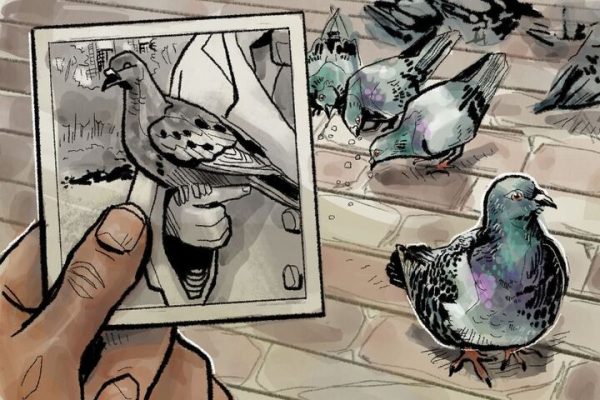Staff editorial: In quest for change, move toward action
A racially charged controversy at the University of Missouri resulted in mass protests, a call for the elimination of discrimination and ultimately the resignation of its president.
In response to the events in Missouri, Wichita State President John Bardo invited student, faculty and staff to an open forum Thursday to address and answer questions about diversity on campus.
The nearly hour-and-a-half-long discussion raised questions about diversity among his cabinet and the university’s effort in protecting the safety of minority students who have reported being threatened by off-campus individuals after the Grace Memorial Chapel controversy earlier this semester.
It’s become clear that there are tensions and issues that need to be resolved, but it is The Sunflower’s opinion that things need to be resolved sooner rather than later.
Among the crowd Thursday sat Student Body President Joseph Shepard, a leading voice in the quest for change on campus.
Shepard stood up and spoke to Bardo and said, “We cannot have people advocating for us who do not know our experiences, who do not look like us, who do not come from the same background as us. This is not a black-and-white issue. This is diversity. That means Hispanic, that means LGBTQ, that means disabilities, that means individuals from all walks of life.”
While The Sunflower applauds Shepard for being an active and influential voice, his intentions remain unclear.
The University of Kansas held a similar, yet more amiable, discussion Wednesday. A student group called the “Invisible Hawks” presented a list of demands to the university’s administration asking that officials institute mandatory “inclusion and belonging” training for staff, faculty and students.
A similar list of demands may help move a process of change along quicker, rather than just pronouncing opinions at an open forum last week. Concerns have touched on safety, diversity, inclusion — in more ways than one — student fees and use of the Grace Memorial Chapel. But how about a formalized request for action in all areas to simplify students’ desire for progress.
Bardo vowed that the Grace Memorial Chapel will remain an “interfaith prayer space,” and promised he would not yield to donors with adverse feelings. He has also said it is important to him to increase diversity in the student body, faculty and his own inner circle of advisers, and to uphold the university’s values. These remarks not only serve as a way to help keep the administration accountable, but hold Bardo and his cabinet to a standard.
Shortly after the forum last week, Bardo released a letter to the student body acknowledging their concerns.
“I’ve been thinking about the words from the student sitting in the front who reminded me twice that while I’m planning at the speed of bureaucracy, she and other minority students are fighting every day for their rights, respect and education,” he wrote in the letter. “I recognized the truth in that.”
Bardo went on to list takeways from the discussion, including looking at diversity training, the accomodation of adult learners, added scholarships and the possibility of a university code of ethics.
It seems that Bardo is taking the initiative to further the discussion. Now it’s time to put that to the test.
“If I had a dollar for every time [Bardo] said strategy, I’d probably be able to pay for my books,” junior Marilyn Morton said after the forum Thursday.
Although Bardo said he is not worried about his position, one could only imagine what would happen if the forum didn’t take place. The discussion proves Bardo’s attempt to address issues before they reach a breaking point, like what happened at Missouri.
The Sunflower believes that there are individuals who face adversity on this campus every day. Their safety and inclusion at WSU needs to be addressed in a timely and organized manner, not at the speed of bureaucracy.
Shepard said in the utmost positive way on his Facebook page last Friday, “The best thing to do is to keep your head up and move forward diligently.”
The question remains, though, how will we move forward diligently as a university?
— Editorial Board







